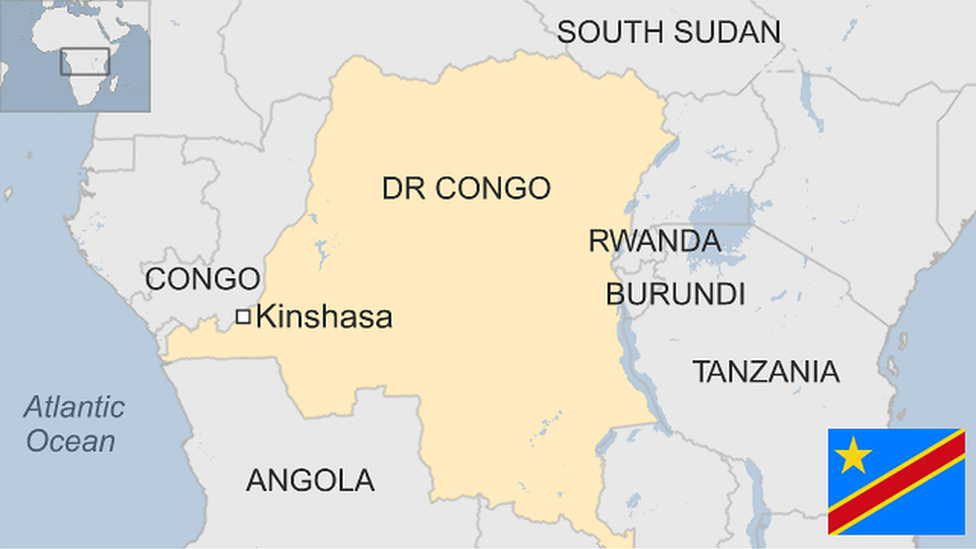Etienne Tshisekedi: DR Congo mourns opposition leader
- Published
The man who defied Mobutu and Kabila
Supporters of Etienne Tshisekedi, the Democratic Republic of Congo's veteran opposition leader, have gathered in the capital, Kinshasa, to express their shock at his death.
A prominent opponent of successive leaders, he was due to head a transitional council under a deal for President Joseph Kabila to step down.
The 84-year-old died in Belgium where he went last week for medical checks.
The information minister said he would be given a state funeral.
Mr Tshisekedi returned to Kinshasa last July to a hero's welcome after two years in Brussels for medical treatment.
His death comes at a sensitive time for DR Congo and follows fierce clashes last year when it was announced that President Kabila would stay in power until April 2018.
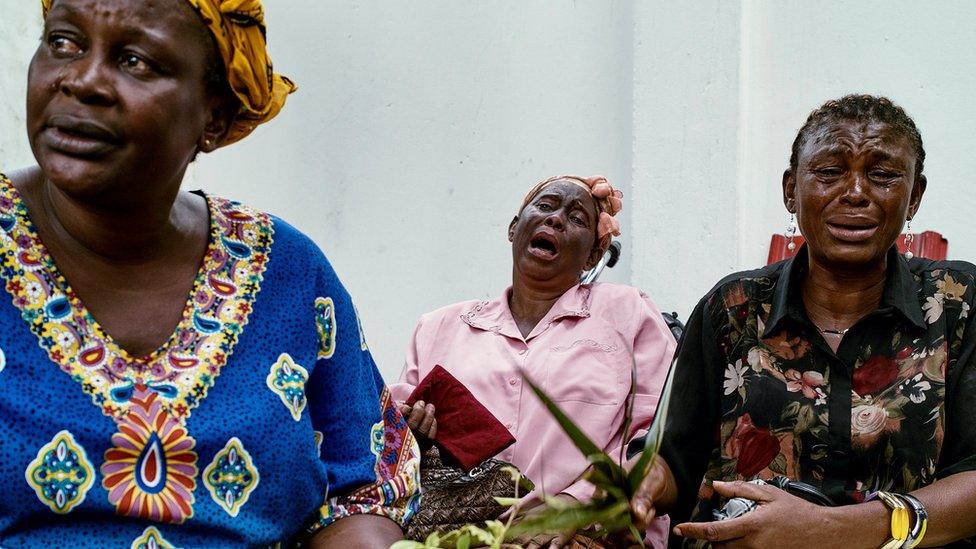
Etienne Tshisekedi's supporters, mourning his death, said he was an incorruptible politician
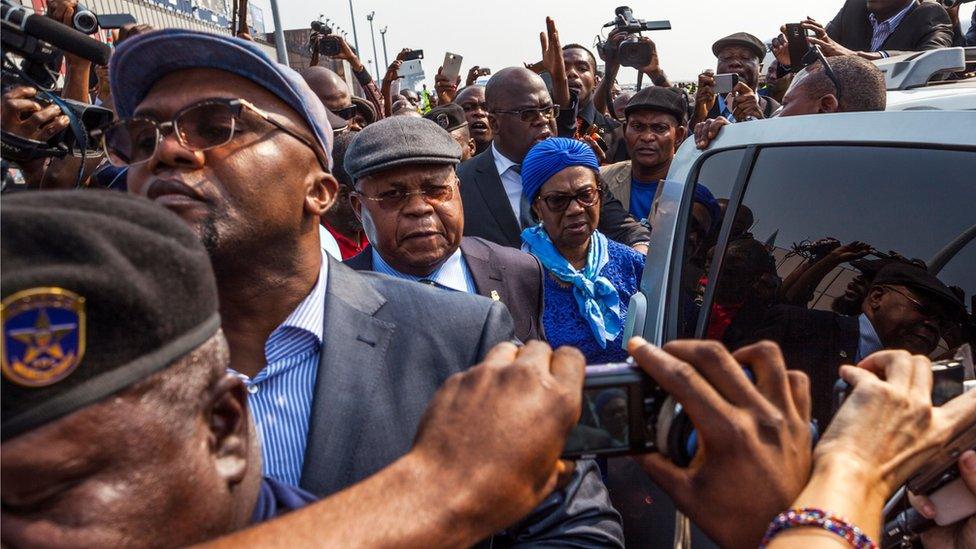
Mr Tshisekedi (C) remained popular and could draw huge crowds
BBC Afrique's Anne-Marie Dias Borges says Mr Tshisekedi was a hugely popular figure in Kinshasa and nicknamed the "Sphinx of Limete", because the mythological creature reflected his long career and many political guises. Limete is his home neighbourhood in the capital.
What next for the peace deal? By Alex Duval Smith, BBC Africa
Mr Tshisekedi's death comes as the opposition and government were negotiating the departure of President Kabila after 16 years in power.
The unfinished talks still require the creation of a transitional government and agreement on election dates. Mr Tshisekedi had been expected to chair a transition oversight committee.
He was a brave proponent of democracy. For more than half a century, a vast nation could unite behind him, against the autocracy of Mobutu Sese Seko or the Kabilas, father and son. But in that time, Mr Tshisekedi became a monument in his own right. His intransigence, at times, may have hindered democratic progress.
In the past three years of Mr Tshisekedi's illness, his son Felix has taken an increasingly prominent role. The future of the the Union for Democracy and Social Progress (UDPS) party is now in the balance. Other, younger, opposition leaders may now find room for manoeuvre in transition talks that are expected to continue under the auspices of the Congolese bishops' conference.
What has been the reaction to his death?
Witnesses say as word of his death spread in Kinshasa on Wednesday evening, clashes broke out between a small group of his supporters and police, who fired teargas.
Mourners who gathered at his son's house in Kinshasa said they were concerned about the future.
"This man sacrificed his life, his youth for us all. This man made us open our eyes. He was our icon. This man was an icon for Africa. He was great. We lost a great man," one woman told the BBC.
Another said his supporters saw him as incorruptible: "He was an historic opponent. [Nelson] Mandela was the best and Tshisekedi comes after."
Didier Reynders, the foreign minister of Belgium - the former colonial power - described Mr Tshisekedi as a "remarkable political figure".
"Belgium joins forces with the Congolese people in their grief and their desire to see his work bear fruit," the AFP news agency quotes him as saying.
What did he achieve during 57 years in politics?
One of DR Congo's first lawyers, his political career took off with independence in 1960 when he became an adviser to Prime Minister Patrice Lumumba and then joined a short-lived secessionist administration of Kasai
Served as a minister under autocratic ruler Mobutu Sese Seko when the country was known as Zaire
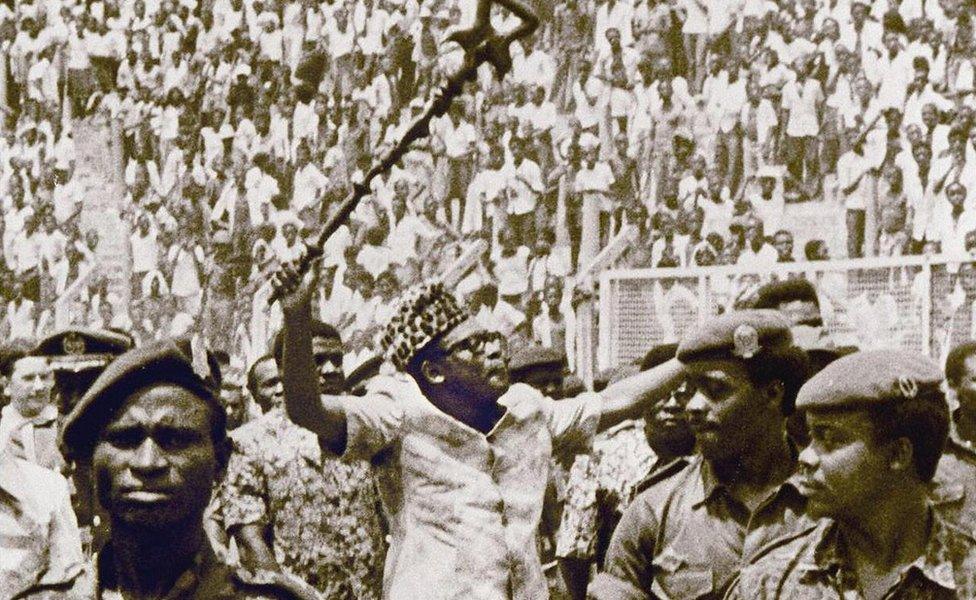
Mobutu Sese Seko (C) seized power in 1965 and was ousted in 1997
When elections were cancelled in 1980, he helped set up the UDPS, the first organised opposition platform
During the 1990s, when the country was in economic turmoil, Mobutu named his rival prime minister at least three times. But they frequently clashed
He remained in the opposition when rebel leader Laurent Kabila took power, but was arrested twice for election-related violence and then sent into internal exile to his home village in the Kasai region
Re-launched his political career in 2011 but was again defeated in a disputed poll won by incumbent Joseph Kabila
Led an opposition coalition demanding that President Kabila leave power when his mandate expired in December 2016. In a deal brokered by the Catholic Church, he was to oversaw a power-sharing deal that would see Mr Kabila leave office this year.
- Published1 January 2017
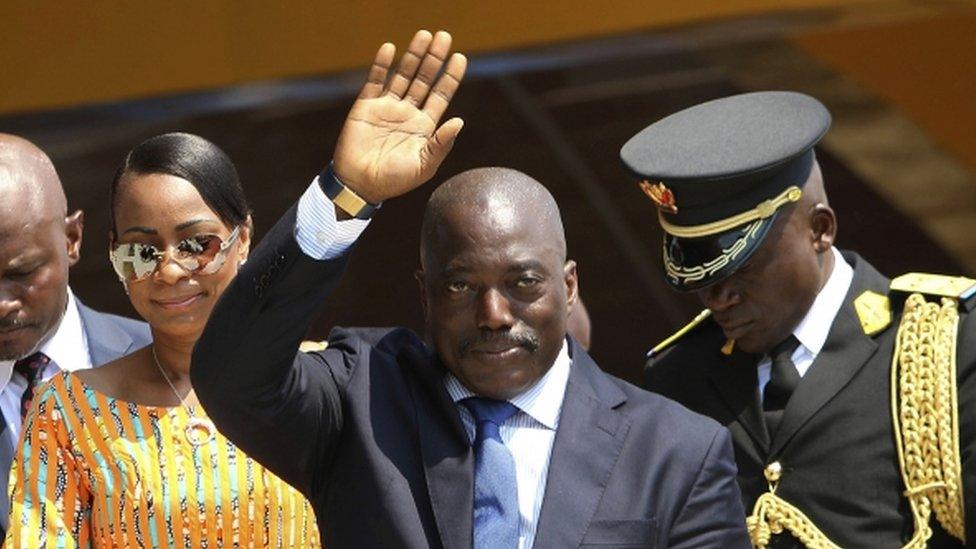
- Published18 December 2016
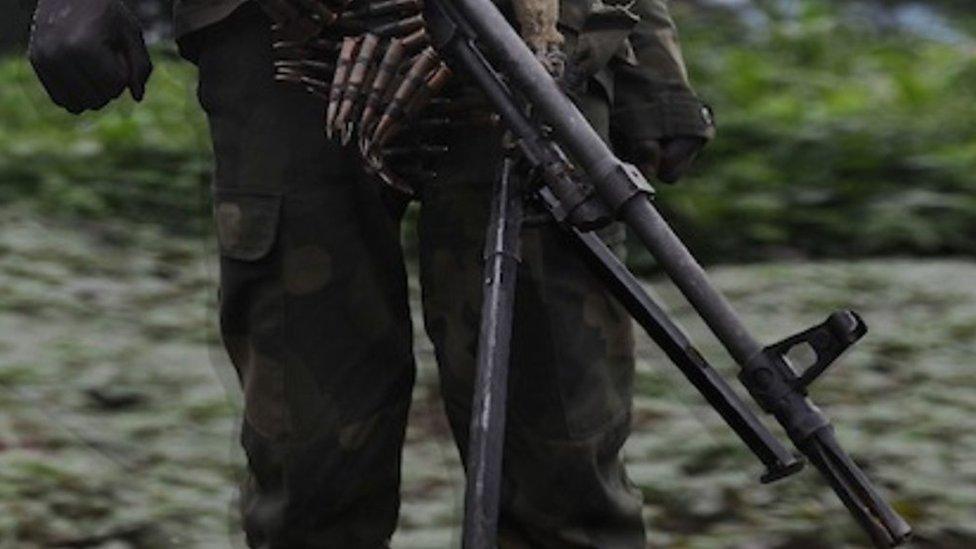
- Published31 January
